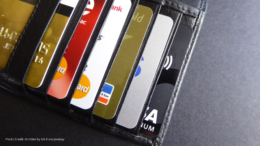Several data breaches have rocked Australia in the past months, jeopardizing the privacy and security of people who have, for one way or the other, engaged in electronic communications and transactions.
As hackers continue to lurk in the web, it’s only a matter of time before the next breach takes place.
But this can totally be prevented if we will only increase our investment in blockchain technology, which has the potential to revolutionize the communications sector through its speed and security.
But first, what is a blockchain?
A blockchain is a shared database or ledger that is distributed among the networks of a computer. It functions as a database that electronically stores data in digital form.
The most well-known use of blockchain technology is for preserving a secure and decentralized record of transactions in cryptocurrency systems like Bitcoin. A blockchain’s novelty is that it fosters confidence without the requirement for a reliable third party by ensuring the accuracy and security of a data record.
The way the data is organized in a blockchain is one significant distinction between it and a regular database. A blockchain gathers information in sets, or blocks, that each include a collection of information.
The blockchain is a chain of data made up of blocks with predetermined storage capacities that, are closed and linked to the previously filled block when filled. This now forms the chain of data known as blockchain.
Following that newly added block, all additional data is collected into a brand-new block, which is then added to the chain once it is full.
A blockchain arranges its data into blocks that are strung together, whereas a database typically organizes its data into tables. When used in a decentralized way, this data structure creates an irreversible chronology of data by design.
Once a block is filled, it is unchangeable and integrated into the timeline. When a block is added to the chain, an accurate timestamp is assigned to that block.
So how does blockchain revolutionise communications?
Encrypted communications
Privacy of user data has always been a huge concern on social networking networks. Blockchain offers the answer by decentralizing data in a way that only authorized users can access any piece of data. This potent idea is now being tapped into by new communications platforms.
Large platforms’ communication issues can be securely solved by blockchain technology because data can only be released with private keys.
Learn how you can advance your use of the latest social media trends in our Social Media for Gov Summit!

Secure VoIP
Both communication service providers and users want their connections to be secure and fast, but they also want to save money. Voice over Internet Protocol (VoIP) has a real potential as a decentralised network system because it is already a significantly less expensive alternative to traditional telephone.
The centralized access point utilized in existing VoIP solutions is eliminated by blockchain technology. It substitutes it with a dispersed network that is accessible to all users of the network and directs the signal from the calling party to a receiving number.
Since all routes have already been specified by the distributed ledger, this avoids any routing expenses which, in turn, maximises data transport speed while maintaining security.
You may also want to read: Aus joins Canada, Ireland, HK, US in fight against scam communications (commsroom.co)
Content Delivery Networks
For content delivery networks (CDNs), blockchain is also helpful in producing a solution. On the internet, CDNs offer a crucial service for the transport of information around the globe, but they also come at a cost and have security vulnerabilities.
Blockchain offers a means of maximizing excess bandwidth from servers all around the world. It connects them to form a sophisticated network of servers that can transfer data smoothly around the globe.
Again, because all of the data is dispersed and only accessible with private keys, the technology also offers maximum security for users.
Blockchain is resolving CDN-related problems, even from a reliability standpoint. The technology decentralizes points of bandwidth, making it possible to quickly restore service in the event of a server disaster or other interruption by rerouting traffic through the network’s numerous other points.
A wide range of sectors continuously being impacted and improved by blockchain. With the proper understanding and use of the technology, a much more enhanced communication industry is surely on its way.
Reference: Investopedia
Post Views: 68
Jaw de Guzman is the content producer for Comms Room, a knowledge platform and website aimed at assisting the communications industry and its professionals.






























